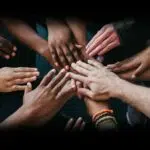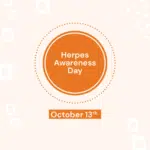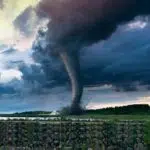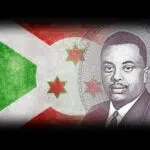Columbus Day is a U.S. holiday celebrated on October 13 commemorating the landing of Christopher Columbus in the Americas in 1492. Over the last few decades however, this celebration has faced serious controversy due to Christopher Columbus’ various horrific acts against Native Americans throughout his life as an explorer. Because of this, many places in California, New York, Minnesota, Colorado, and more have transformed this holiday into Indigenous People’s Day. This day no longer has to be a painful reminder, but a positive symbol of how we’ve progressed and evolved. So, if you’re one of the lucky people who don’t have work today, now’s your chance to educate yourself on Native American culture and learn more about the origins of our nation!
History of Columbus Day
Though Columbus discovered the Americas in 1492, the earliest documentation of any unofficial celebration of Columbus Day wasn’t until 1792. By the 400th anniversary, following a lynching in New Orleans where a mob had murdered 11 Italian immigrants, President Benjamin Harrison declared Columbus Day as a one-time national celebration. This was part of a larger effort after the lynching incident to placate Italian Americans and ease diplomatic tensions with Italy. During this celebration, politicians, poets, teachers, and preachers began to spin the web of patriotism under the veil of Columbus. These rituals took themes such as citizenship boundaries and the importance of loyalty to the nation. Many Italian-Americans took this as an opportunity to celebrate their heritage. It wasn’t until 1966, when Mariano A. Lucca, from Buffalo, NY, founded the National Columbus Day Committee, which lobbied to make Columbus Day a federal holiday. These efforts were successful and Columbus Day became a federal holiday in 1968.
Over the years, the celebration of Christopher Columbus Day has become more and more controversial due to the atrocities he committed against Native Americans. To many, Christopher Columbus is not a celebrated hero, but a violent tyrant who wasn’t very good at navigating, considering he thought he’d landed in India when reaching the Americas. He also was responsible for the enslavement, mutilation, and mass genocide of thousands of Native Americans and indigenous people.
Because of this fact, the celebration of Columbus Day has become less and less of a day of pride and more of a painful reminder to a dark past in American history. Since the early 70s, many states have petitioned to have the name changed to National Indigenous People’s Day to honor Native Americans and commemorate their stories and culture. Recently, it has taken effect as an official state holiday in various places.
Columbus Day timeline
Charles Curtis serves as the first U.S. Vice President of Native American descent under President Herbert Hoover.
Cherokee Admiral Joseph J. “Jocko” Clark rises to command the U.S. Seventh Fleet during the Korean War, making him the most powerful war chief in American Indian history.
Columbus Day becomes a Federal Holiday under President Lyndon B. Johnson’s administration.
South Dakota becomes the first state to make Indigenous People’s Day an official holiday.
Los Angeles removes the bronze statue of Christopher Columbus from Grand Park.
Columbus Day FAQs
Why do we celebrate Columbus Day?
Though many states no longer celebrate Columbus Day, the day was originally created in order to placate tension and violence against Italian-Americans in the late 1700s.
What is the meaning of Columbus Day?
Columbus Day, though a controversial holiday, commemorates the landing of Christopher Columbus in the Americas.
Why is Columbus Day no longer celebrated?
Many states have replaced Columbus Day with Indegenous Peoples Day as a response to the brutality Columbus showed towards Native Americans upon his arrival to the “New World.”
How to Observe Columbus Day
Get better acquainted with American History
It is important to acknowledge the history of the native people who lived on this land before the European settlers arrived. Don’t presume that you know the answers – the version of history you were taught in school may have been European-focused and may not have included a lot of details about Native culture and history.
Use it as a platform to discuss current events
One of the most important things you can do is to talk about Native American life and issues, rather than avoiding the topic. Simply sharing stories and talking about native issues will help to raise awareness.
Buy Native Products
Whenever you purchase an artwork, a handmade piece of clothing or another product created by an indigenous person, you are not only supporting the native economy but also preserving the culture. Plus, the beautifully handcrafted products are truly high quality and will be something special that you will cherish for many years.
5 Fun Facts About Columbus
The Santa Maria wrecked
On Christmas Eve of 1492, Columbus’s flagship ran into a coral reef on the northern coast of Hispaniola.
Dead Men Leave No Tails
After leaving nearly 40 crewmembers behind to start the first European settlement in the Americas, Columbus returned to the settlement in the fall of 1493 to find none of his crew had survived.
To Spain in Chains
In August 1500 people demanded Columbus be arrested and a royal commissioner dispatched to Hispaniola and brought Columbus back to Spain in chains, however, King Ferdinand still granted the explorer his freedom and subsidized a fourth voyage.
Tricky Chris
After being abandoned by half his crew in Jamaica and denied food by islanders, Columbus came up with a clever lie saying his god would punish them for not helping him and the lunar eclipse was a sign of that.
No one thought the earth was round
Though many people believe Columbus’ big mission was to debunk flat earthers, by 1492, most educated people knew the planet was not shaped like a pancake.
WHY COLUMBUS DAY IS IMPORTANT
It reminds us where we came from
Columbus Day is a yearly reminder that, for most of our ancestors, becoming American was a journey. Regardless of where your family came from, Columbus Day is an opportunity to think about what our ancestors, and the ancestors of our friends, had to do to find a comfortable life.
It gives us time to reflect
As evidenced by the Indigenous Peoples Day movement, Columbus Day doesn't come-and-go without commentary about the hardships that the natives faced as a result of Columbus' conquests. It benefits everyone when we take time to reflect on the hard truths of our past, in hopes of being better people moving forward.
It's one of our oldest holidays
While it didn't receive federal designation until the 20th century, Americans celebrated Columbus Day as far back as 1792 — on the 300th anniversary of Columbus' passage.
Columbus Day dates
| Year | Date | Day |
|---|---|---|
| 2024 | October 14 | Monday |
| 2025 | October 13 | Monday |
































